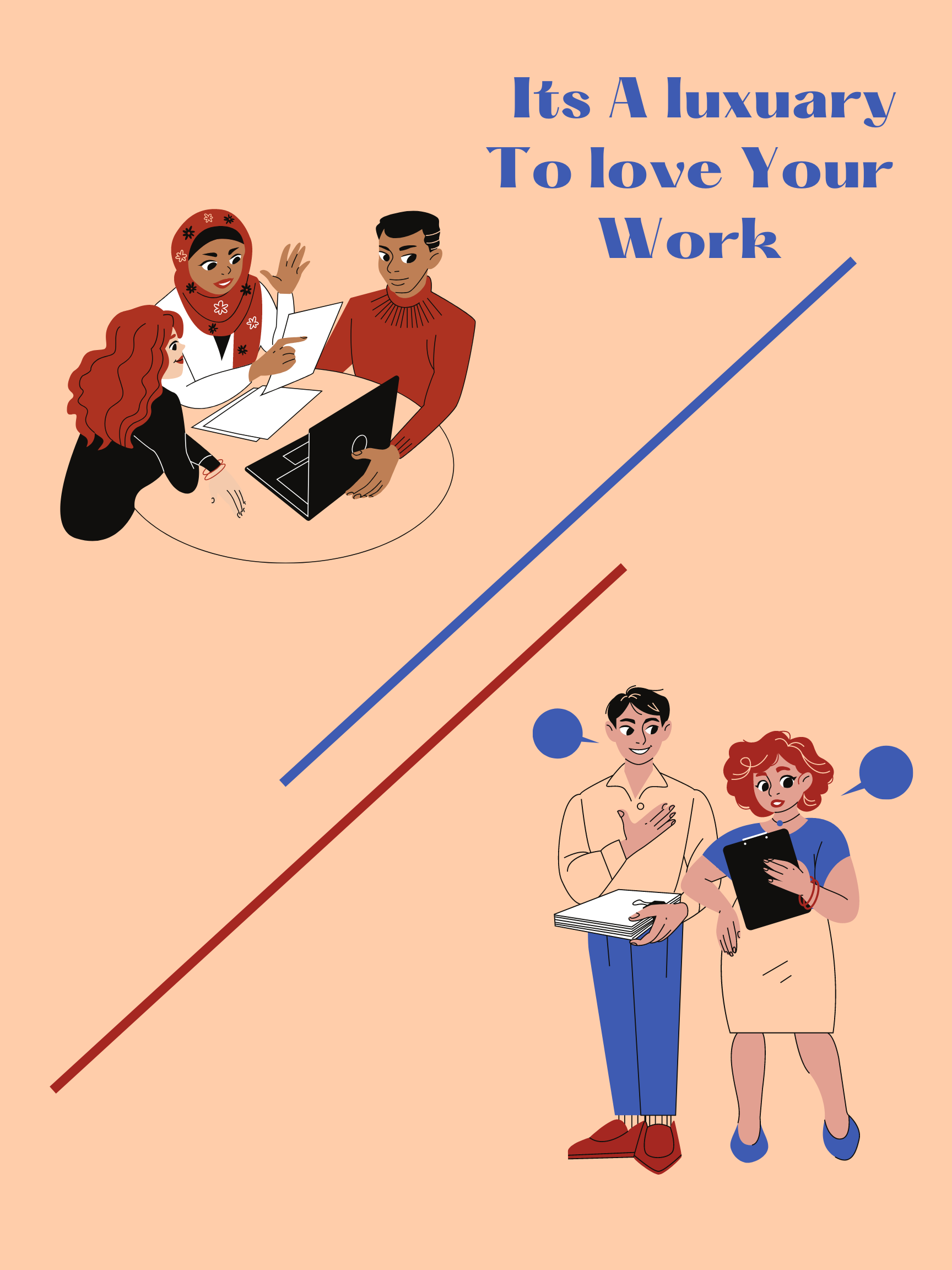It Is a Luxury to Love Your Work

Francesca Crumpton
05/02/22
It Is a Luxury to Love Your Work
As the content director for O.C. Tanner Institute the global leader in employee recognition and culture, Todd Nordstrom writes in “People That Truly Love Their Work Understand Something That Most of Us Don’t” that the corporate world can bury passion in pride and professionalism. The balance between work and life is hard to find in many different work environments. Nordstrom writes that he tells people to “ stop searching because 'work-love' doesn't come from the perfect organization, or from the perfect resumes. It comes from creating value and opportunity by offering the best version of yourself to the world.” He gives a list of things you can do to make work exciting and enjoyable. He says you can do what you are best at, skip perfection, take pride in the work you produce, and look for fear and firsts because doing things out of your comfort zone can change how you value your time and effort. He also claims that happiness comes from recognizing your greatness. While these tips seem helpful, they do not recognize the variables that make it harder for some to find this bliss. There is significant prejudices in most industries that make working much harder for minorities. Along with this, low-income and working-class people do not always have the luxury of choosing a job that they love.
There are many different factors that can go into a good workplace, and because there are so many different fields it can be difficult to pinpoint the all-encompassing word “love” to one specific industry. It is also important to note that the current job market has been largely affected by the Covid-19 pandemic, with more people resigning and switching career paths than ever before. A 2021 survey found that 69% of people say they currently “love” their job, a higher number than usual. Whether this percentage is due to the work itself, the customers and coworkers, or an important work/life balance, the past few years have allowed people to discover new hobbies and interests. After a long quarantine where many Americans had time to reflect on their lives, many have found a new career that they can honestly love.
Another thing this pandemic has taught us is how to stand up for what is right. After the eruption of Black Lives Matter protests across the country during the national quarantine, many people have decided to stand up against racism, especially in the workplace. Workplace racism incidents have also gone down since moving to remote models. There are significant factors that have wired the system against minorities. People of color and other minorities face discrimination often in workplaces all around the country. Robert Weech-Maldonado writes “the minority stress theory posits that members of a stigmatized minority group may experience chronically high levels of stress due to prejudice and discrimination and that the higher levels of stress can reduce an individual’s well-being and happiness.” People of color take up a significant portion of the working class, 41% as of 2015, yet that number is growing rapidly.
As an African American woman, Simone Leigh managed to break free from the pattern of hating work and found her passion for art. Calvin Tomkins writes in “The Monumental Success of Simone Leigh” about finding passion later in life in a world turned against African Americans’ success. Simone Leigh grew up in The Nazarene Church, with strict parents who did not allow her to express any creativity or passions. She eventually found her love for art, and it allowed her to explore her heritage as an African American woman and the inherent struggles that she often must conquer. Leigh says that “The Western world eats other cultures—takes from the culture and denigrates it at the same time, and it becomes part of their culture.” Her sculptures are now being premiered at her own Venice art show, and she uses her art to express the struggles of oppression and injustice that African Americans face. She has taken the struggles she has often faced and used them to make a career for herself, a career that is filled with happiness and success. This example is inspiring, yet it is not the common outcome for most people of color in America. Many minorities are faced with racism in their jobs and do not have the ability to change careers as Leigh did.
Finding love in your work does not always mean being the most successful, and for an Elvis impersonator in Los Vegas, he values the fun and energetic aspect of work. In a Death Sex and Money podcast episode titled “This Elvis Impersonator Does It For Love… And Money” Brendan Paul says his work just fell into his lap when a new haircut had strangers telling him he looked like the famous Elvis Presley. He began singing for parties and events dressed in the iconic singer’s outfit and it became a passion for him. He had always loved singing but was not happy struggling to make it in the music industry. It is not always plausible to follow your dream when there are financial needs in the way, yet Paul has found his success story in unexpected work that makes him happy and pays his bills. He said in the interview, “ Like my dad worked for the government and hated it, and would come home and complain. And I just looked at him. I just remember going, like, ‘That's what you do in this world?’ I-I just was like, ‘I want to put on makeup and join KISS.’” You know? After he discovered his unique talent, he decided to co-own the Graceland Wedding Chapel, where he marries up to 75 people every day. He describes that the joy of uniting happy couples in such a fun way has made him love his job, and has given him the ability to create his own job through his passion for music. While his story is inspiring, it still highlights that many people have to find happiness in where they end up in order to still make a living. Paul wanted to be a musician and didn’t picture himself ending up at a Vegas chapel, but he needed to support himself so he created happiness where the money was.
It is also important to stress the physical and mental labor that some jobs require. Jan-Emmanuel De Neve and George Ward write, “people working blue-collar jobs report lower levels of overall happiness in every region around the world. This is the case across a variety of labor-intensive industries like construction, mining, manufacturing, transport, farming, fishing, and forestry.” While unhappiness can stem from many things and not only affects blue-collar workers, there is a significant gap between the well-being of laborers and office workers. It is not always easy to find a fulfilling job because there are many labor jobs necessary to the function of society. Yet they do not need to drain the happiness out of workers. There are unions and workers' rights groups that can demand the pay and benefits necessary to make these jobs worth it, yet it is a luxury to even have the resources or knowledge to fight for this.
There are many things holding us back from finding happiness in our work. Whether it’s social activism through art or marrying lovers as an Elvis impersonator, or even a typical corporate job, working can be stressful and sometimes encompassing. Nordstrom’s advice is good, yet there are limitations to what some people can do about their situations. Despite the prejudices built in our society and the limitations that economic classes put on opportunities, we still aim to find some way to pursue a career that will fulfill us. It is a luxury to find happiness in work, but when it comes to your livelihood you need to find a version of happiness in order to live. Not everyone has access or the opportunity to follow their passions, but if we can change the culture around work, we can make these environments happier for everyone.


